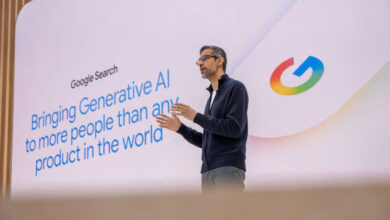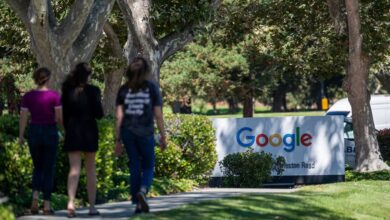
Google Inc's executive chairman, Eric Schmidt, will travel this year to reclusive North Korea, where Internet use is subject to some of the world's tightest controls, the Associated Press reported on Wednesday.
Schmidt, one of the highest-profile leaders of the US technology industry, could visit as early as this month, the AP said. The announcement was made days after North Korean leader Kim Jong-un, the third member of his family to rule the country since its inception in the Cold War, signaled a willingness to improve relations with South Korea.
It was unclear whom Schmidt will meet or what his agenda might be, the AP reported. Internet access is largely restricted to all but the most influential officials of the reclusive state. Media content is also rigidly controlled, although basic 3G cellphone use is said to be rapidly expanding.
Google did not directly respond to a question about whether Schmidt was going to North Korea, although a spokeswoman's response suggested a visit would not be for company business.
"We do not comment on personal travel," spokeswoman Samantha Smith said when asked about the AP report.
Schmidt, Google's main political and government relations representative, has also been a prominent supporter of President Barack Obama.
Google famously espouses a "do no evil" philosophy and campaigns for Internet freedom. It pulled its search service from mainland China in 2010, relocating it to Hong Kong because it said it could not conform with censorship requirements.
Last year, the company flew in North Korean defectors from Seoul for a panel discussion at a summit it hosted focusing on global illicit networks. It has also hosted North Korean officials in Silicon Valley, according to the Asia Foundation, which co-hosted part of a trip by the North Korean delegation.
"I think this is part of Google's broader vision to bring the Internet to the world, and North Korea is the last frontier," said Peter Beck, the South Korean representative of the Asia Foundation, a non-profit organization. "I suspect that Google's visit is more philanthropic than financial."
Beck said the North Korea delegation had been shown a Google Earth view of their capital Pyongyang.
Schmidt is writing, with former US State Department official Jared Cohen, a book due in April called "The New Digital Age." It will address how the Internet and technology can empower people and drive fundamental social, political and economic change.
"Perhaps the most intriguing part of this trip is simply the idea of it. The restricted control of information lies at the heart of the DPRK state and yet it is about to host one of the West's greatest facilitators of borderless information flows," said Victor Cha, a senior adviser and Korea expert at the Center for Strategic and International Studies.
The DPRK stands for the Democratic People's Republic of Korea, the North's official name.
"If Google is the first small step in piercing the information bubble in Pyongyang, it could be a very interesting development," Cha wrote on the center's website on Wednesday.
First-timer
Schmidt's visit will make him one of the most prominent American businessmen to visit the country.
The AP cited two people familiar with his plans as saying the ex-Google CEO will join a private group led by former United Nations Ambassador and New Mexico governor Bill Richardson, a frequent visitor to North Korea.
Their visit follows a long-range rocket launch that has triggered a drive for further United Nations sanctions. North Korea is banned from testing missile or nuclear technology under sanctions imposed after its 2006 and 2009 nuclear weapons tests.
A second aspect of Schmidt's visit as part of Richardon's delegation could be to try to obtain the release of Korean-American tourist Kenneth Bae, accused of crimes against the state. Richardson has helped negotiate the release of detained Americans in the past.
"Richardson has had a history of trying to jump-start dialogue at low points in the US-DPRK nuclear talks. He is a well-known quantity to North Koreans and does have credibility with them," Cha wrote.




